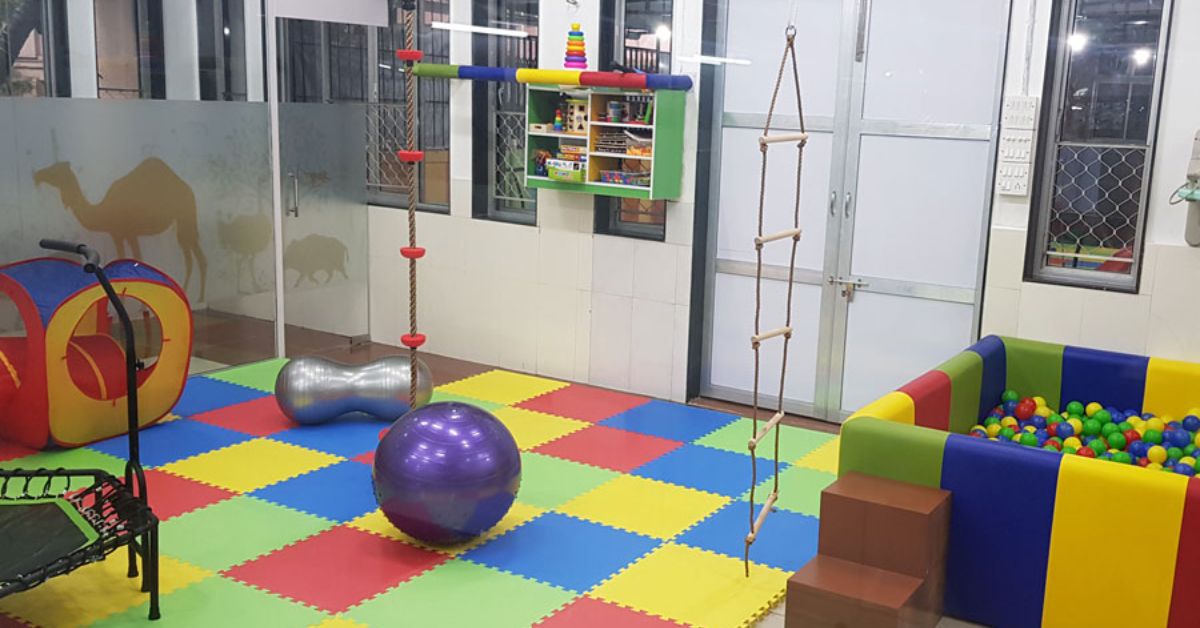The Role of a Speech Therapist: What to Expect in Your Child’s Therapy Journey
If you’ve noticed that your child has difficulty speaking clearly, understanding language, or making social connections through speech, you may have considered seeing a speech therapist. A speech therapist can help children overcome these challenges, improve communication skills, and build confidence.
If you’re in a city like Mumbai, finding the right professional, such as a speech therapist in Mumbai, can make all the difference. Here’s what you can expect during your child’s therapy journey and how a speech therapist can help.
What Does a Speech Therapist Do?
A speech therapist is a trained professional who helps children with speech, language, and communication problems. They focus on improving how children express themselves, understand others, and interact socially. The therapist uses various techniques and exercises to address a range of issues, including:
- Speech disorders: difficulty pronouncing words or sounds clearly.
- Language Delays: Trouble understanding or using language appropriately.
- Social Communication: Challenges in interacting with others or understanding social cues.
- Feeding and Swallowing Issues: problems with eating or drinking that affect speech and development.
Speech therapy is not just about teaching children to speak better. It also addresses cognitive skills, social skills, and overall communication abilities that are crucial for daily interactions.
The First Step:
The therapy journey begins with an initial assessment. During this stage, the speech therapist will observe and evaluate your child’s communication skills. This often includes:
- Questionnaires and Interviews: The therapist will ask about your child’s speech and language history, including any concerns you may have.
- Standardised Tests: These tests help measure your child’s skills in specific areas like vocabulary, grammar, and understanding.
- Observation: The therapist may also observe how your child interacts with peers and adults to understand their social communication abilities.
This assessment helps the therapist identify the underlying issues and design a personalised treatment plan. Every child’s journey is unique, and therapy is tailored to their specific needs.
Setting Goals for Therapy
Once the therapist understands your child’s needs, they will set clear, achievable goals. These goals can vary based on the child’s age and specific challenges. For example, goals may include:
- Improving speech clarity and articulation.
- Expanding vocabulary or improving sentence structure.
- Teaching effective listening skills.
- Encouraging social interaction and conversation.
- Developing cognitive skills, such as memory and problem-solving.
Each goal is set with measurable progress in mind, ensuring that both you and the therapist can track improvements along the way.
Types of Techniques Used in Speech Therapy
Speech therapists use a wide variety of techniques and activities to help children improve their communication skills. Some of the common methods include:
- Articulation Therapy: This focuses on helping children pronounce sounds correctly. The therapist may use fun exercises, such as games or flashcards, to make learning enjoyable.
- Language Intervention: These activities help children learn how to form sentences, understand grammar, and expand their vocabulary. This might include storytelling, reading exercises, or conversation practice.
- Social Skills Training: Many children with communication difficulties struggle with understanding social cues. Through role-playing and guided conversations, therapists teach children how to interact with others effectively.
- Play Therapy: Play is a natural way for children to learn. Through play-based exercises, therapists help children practice speech and language skills in a relaxed, enjoyable setting.
- Oral-Motor Exercises: These exercises help children develop the muscles needed for proper speech production. They can also assist with swallowing and feeding issues.
What to Expect During Therapy Sessions
The frequency and length of therapy sessions will depend on your child’s specific needs. In general, sessions are structured but can be tailored to keep your child engaged and motivated. Here’s what you can expect:
- Therapy sessions are usually conducted individually, allowing the therapist to focus on your child’s specific challenges.
- Expect games, songs, and activities that are both educational and fun. These will help your child develop communication skills in an enjoyable way.
- You will be involved in the process, with the therapist offering guidance on how to practice at home. Your participation can make a big difference in your child’s progress.
How Long Will Therapy Take?
The length of therapy depends on the severity of your child’s issues. Some children may only need a few months of therapy, while others might require longer support. Regular assessments will help measure progress and adjust the therapy plan as needed. Consistency is key, and many children start showing noticeable improvements within a few weeks.
Overcoming Challenges Along the Way
While speech therapy is highly effective, the journey may have its ups and downs. Some children may initially resist therapy or find certain activities difficult. It’s important to stay patient and keep encouraging your child. Positive reinforcement and maintaining a consistent routine at home will help motivate your child to continue making progress.
Success Stories and Results
Many parents see remarkable progress after their child has undergone speech therapy. Children who once struggled to communicate may start speaking more clearly, using bigger vocabulary, and engaging in social conversations. These improvements can significantly boost their self-confidence and social skills, making them more comfortable in school and social settings.
The Benefits of Early Intervention
The earlier speech therapy begins, the better the outcomes. Early intervention is key to helping children overcome speech and language delays. Research shows that children who start therapy at a younger age tend to develop stronger communication skills and have fewer difficulties later in life.
The Bottom Line
Speech therapy can transform your child’s ability to communicate and connect with others. Whether it’s a minor speech delay or more complex communication challenges, a skilled therapist can help your child make significant progress. Be prepared for a collaborative effort where you, the therapist, and your child work together to achieve the best results.
If you’re seeking professional help, a speech therapist can provide the specialised care your child needs. With the right therapy and support, your child’s journey toward improved communication can be a rewarding one, setting the stage for lifelong success.







